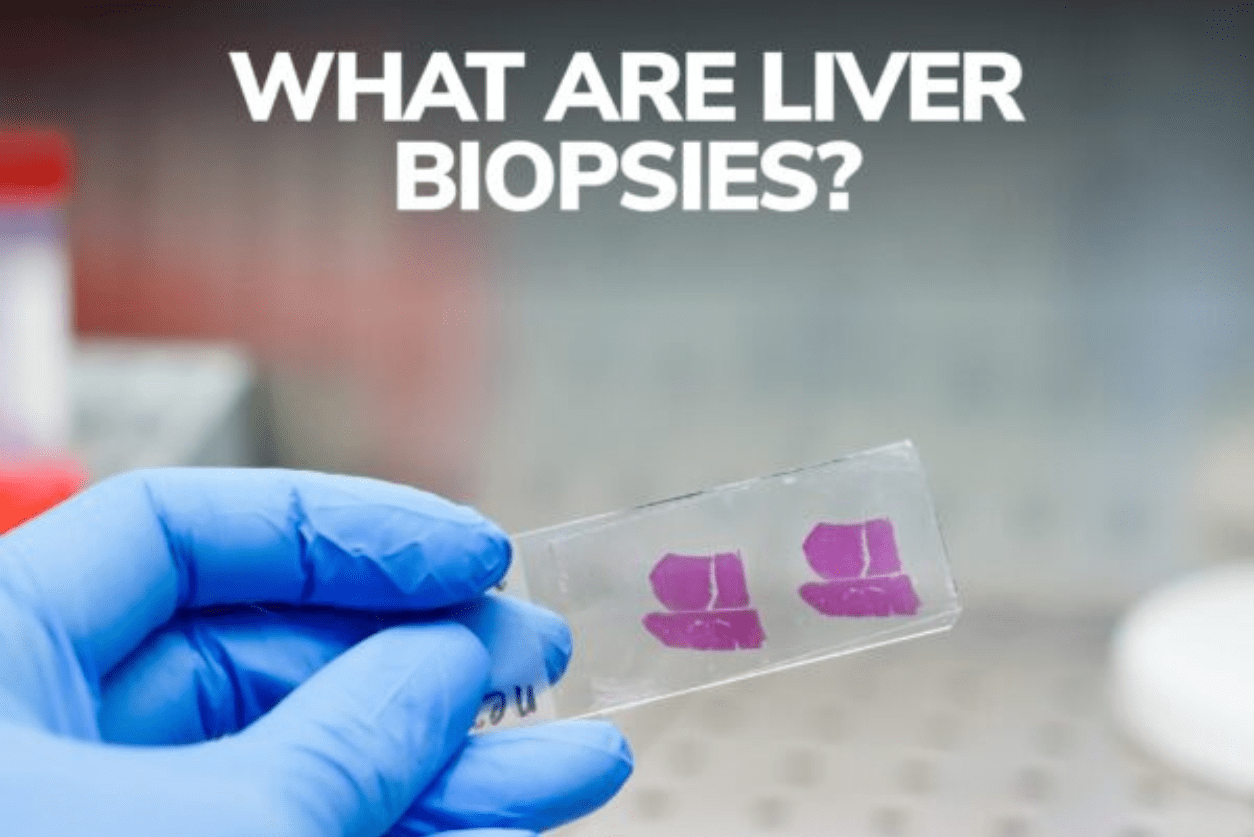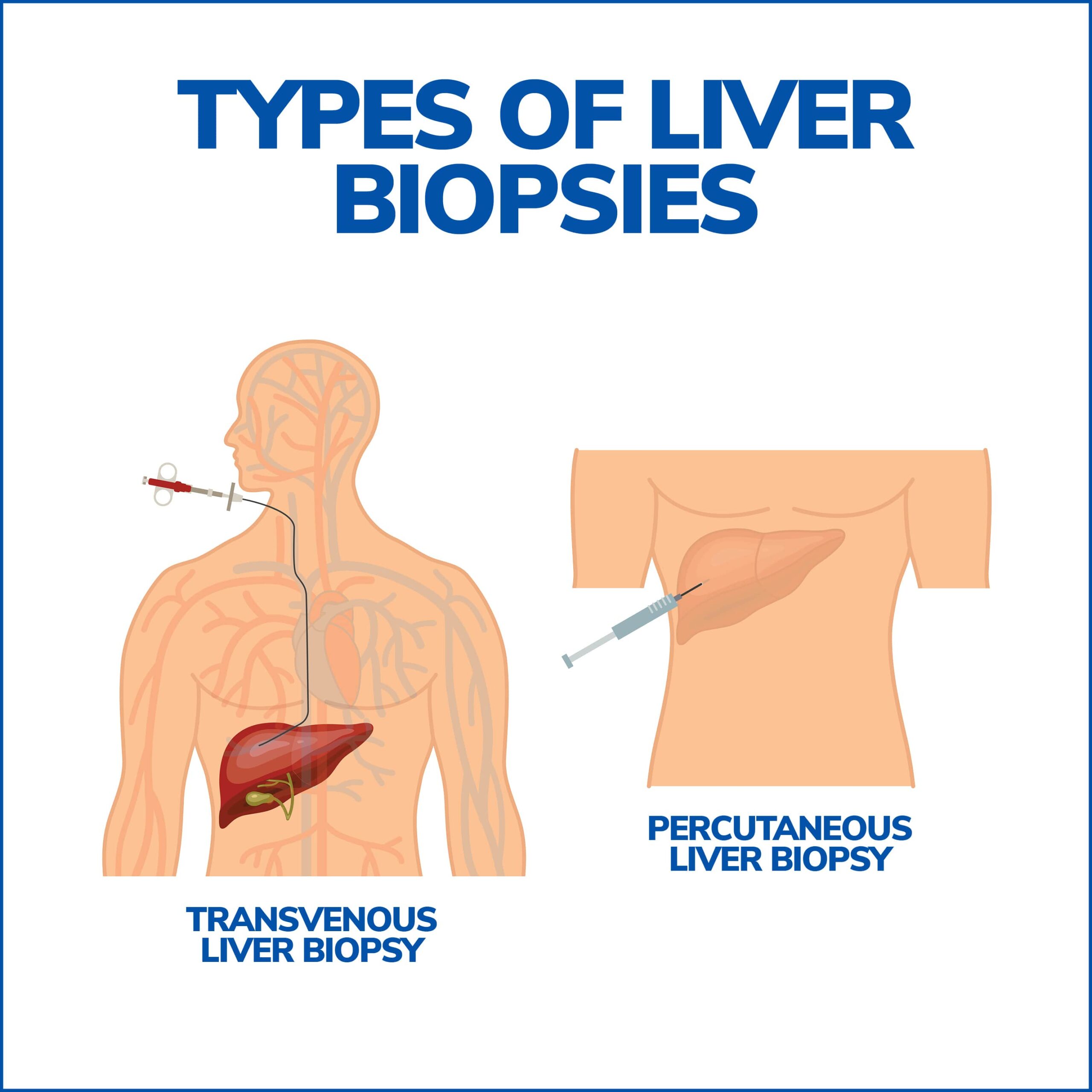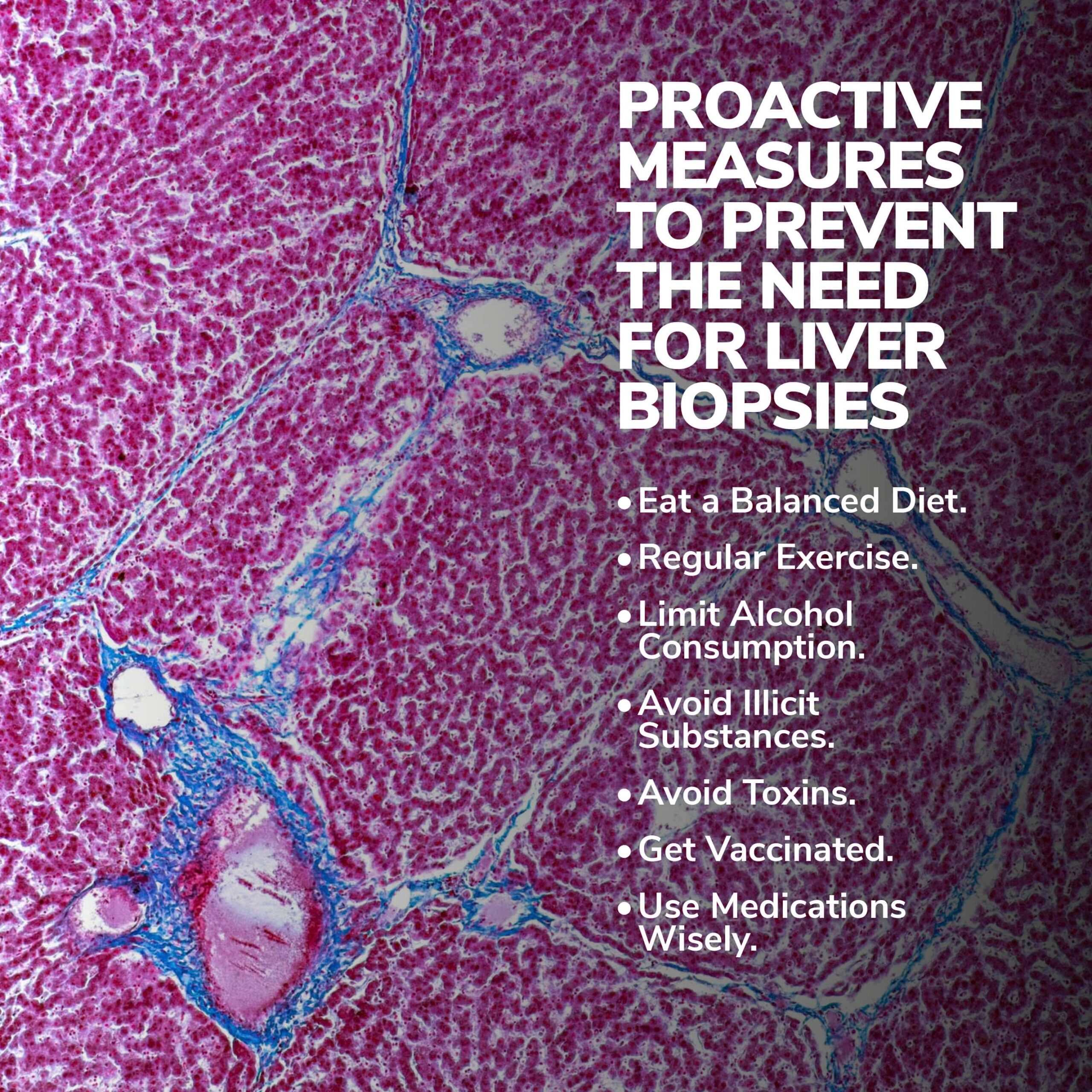
What are Liver Biopsies?
Every year, many individuals undergo liver biopsies to diagnose or monitor conditions that impact this vital organ. Despite the procedure’s common use, many patients feel apprehensive or unsure about what to expect. We’ll help demystify the process, outline the different types of liver biopsies, and explore their benefits and risks.
What is a Liver Biopsy
A liver biopsy refers to a procedure where doctors take out a tiny piece of your liver to look at it under a microscope. A doctor specializing in identifying diseases by looking at cells and tissues (a pathologist) will do this.
It is usually an outpatient procedure, which means you can go home the same day. This procedure aims to gather information about your liver, like if there’s any damage, disease, or infection.
Are Liver Biopsies Common?
Because liver biopsies are invasive (meaning they require entering the body), they’re usually only done when non-invasive tests can’t provide the information needed. If your gastroenterologist has recommended a liver biopsy, they believe the benefits outweigh the risks.
How is a Liver Biopsy Done?
The procedure for a liver biopsy might seem a bit complicated, but here it is, broken down into simple steps:
- Before the Procedure: Before anything happens, your doctor will explain the process and answer any questions. You might need to stop eating and drinking for a few hours before the procedure to prepare.
- Getting Ready: On the day of the procedure, you’ll be given a hospital gown and lie down on a bed. The doctor will then use a marker to indicate the spot on your skin where they’ll insert the needle.
- Local Anesthesia: The doctor will give you a local anesthetic to numb the area where the needle will be inserted. You’ll be awake during the procedure but not feel any pain.
- Guiding the Needle: The doctor will use an ultrasound machine or a CT scan to see your liver and guide the needle. These are both types of imaging technology that let the doctor see inside your body.
- Taking the Sample: The doctor will insert a long, thin needle into your liver. They’ll use the needle to take a small sample of liver tissue. When this happens, you might feel a bit of pressure or a dull ache.
Types of Liver Biopsies
There are three main types of liver biopsies – each with its method and considerations:
- Percutaneous Biopsy: This is the most common type. Your doctor inserts a needle through your skin into your liver to remove a tissue sample.
- Transjugular Biopsy: This method might be safer if you have bleeding issues. The doctor inserts a catheter into a vein in your neck, guiding it to your liver.
- Laparoscopic Biopsy: This method is used if your doctor needs to take samples from specific areas of your liver. It involves making a small incision and inserting a special instrument with a camera and a biopsy needle.

Each type has benefits and suitability depending on your condition and overall health status.
After Your Liver Biopsy
- Post-Procedure Care: Once the needed sample is obtained, the doctor will remove the needle and apply a bandage to the insertion site. To help prevent any bleeding, you may be asked to lie on your right side for a few hours.
- Sample Analysis: The tissue sample collected doesn’t stay with the doctor. It is sent to a laboratory where experts can closely examine it under a microscope. This detailed inspection can reveal critical insights such as inflammation, scarring, the presence of fatty liver, or cellular changes that might indicate liver disease or cancer.
A liver biopsy procedure continues after sample extraction. The immediate aftercare and lab analysis are crucial parts of the process, leading to a comprehensive understanding of your liver’s health status.
Potential Risks and Complications of Liver Biopsies
While liver biopsies are common and generally safe, they have certain risks and potential complications. It’s essential to understand these to make an informed decision about your healthcare:
- Pain or Discomfort: You may experience pain or discomfort at the biopsy site or on your right shoulder after the procedure. This is often a temporary issue, but promptly communicating any persistent pain to your doctor is vital.
- Bleeding: One of the more significant risks associated with liver biopsies is the potential for internal bleeding. Although rare, it’s possible due to the liver’s rich blood supply. If significant bleeding happens, it may need further medical intervention to stop it.
- Infection: Any procedure that involves penetrating the skin, such as a liver biopsy, carries a small risk of infection. The area is sterilized beforehand to cut this risk, but it’s important to seek medical attention if you notice signs of infection like redness, swelling, or fever.
- Injury to Other Organs: While extremely rare, there’s a minimal risk that nearby organs could be injured during the procedure. Imaging techniques like ultrasound or CT scans to guide the needle placement reduce this risk considerably.
Knowledge of these potential risks and complications can aid in open conversations with your gastroenterologist about the procedure’s pros and cons. The medical team will take all necessary precautions to minimize these risks, ensuring your safety and well-being during the operation.
Proactive Measures to Prevent the Need for Liver Biopsies
You can help prevent the need for a liver biopsy by maintaining a healthy lifestyle to protect your liver. Here are some ways to maintain good liver health and potentially avoid conditions that might cause the need for a liver biopsy:
- Eat a Balanced Diet: A diet rich in fruits, vegetables, lean proteins, and whole grains helps maintain a healthy weight and supports liver function. Try to avoid highly processed foods, which can strain the liver.
- Regular Exercise: Regular physical activity can help maintain a healthy weight and reduce your risk of fatty liver disease, a common condition that might need a liver biopsy.
- Limit Alcohol Consumption: Chronic heavy drinking can lead to cirrhosis and other liver damage. Limiting or avoiding alcohol can protect your liver health.
- Avoid Illicit Substances: Illicit drugs can cause a range of liver problems. Avoiding these substances helps protect your liver.
- Avoid Toxins: Limit exposure to chemicals from cleaning and aerosol products, insecticides, chemicals, and cigarettes. When absorbed, these can damage liver cells.
- Get Vaccinated: Vaccines can protect against certain diseases, like Hepatitis A and Hepatitis B, that can cause liver damage.
- Use Medications Wisely: Certain medications can cause liver damage if taken in large quantities or over a long period. Always follow your doctor’s instructions when taking medication, including over-the-counter drugs.

Remember, regular medical checkups can help catch liver disease early. If your gastroenterologist can detect and treat any liver issues at their onset, it may reduce the need for invasive procedures like a liver biopsy.
Making Informed Decisions About Liver Biopsies
A liver biopsy can provide vital information about your liver health and guide your treatment. But like all medical procedures, it’s essential to have a thorough discussion with your gastroenterologist about the need for the procedure, its benefits, and potential risks.
If you’re experiencing gastrointestinal issues, please contact Gastroenterology of Greater Orlando. Our team of experts is here to help diagnose and treat your condition with the utmost care and expertise. Our practice began more than 15 years ago and has emerged as one of the leading gastroenterology practices in central Florida. We perform a host of diagnostic procedures using state-of-the-art equipment in a friendly, comfortable, and inviting atmosphere where patient care is always a top priority. Contact us today!